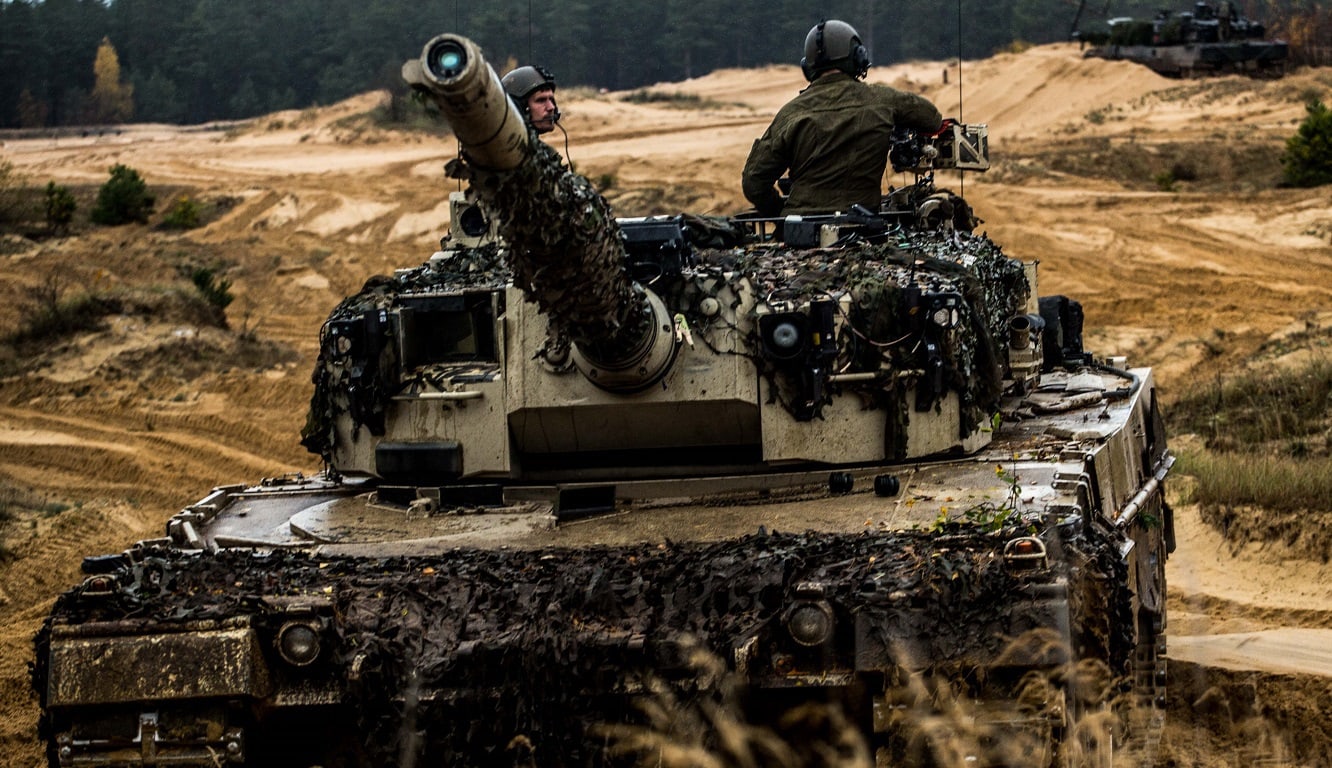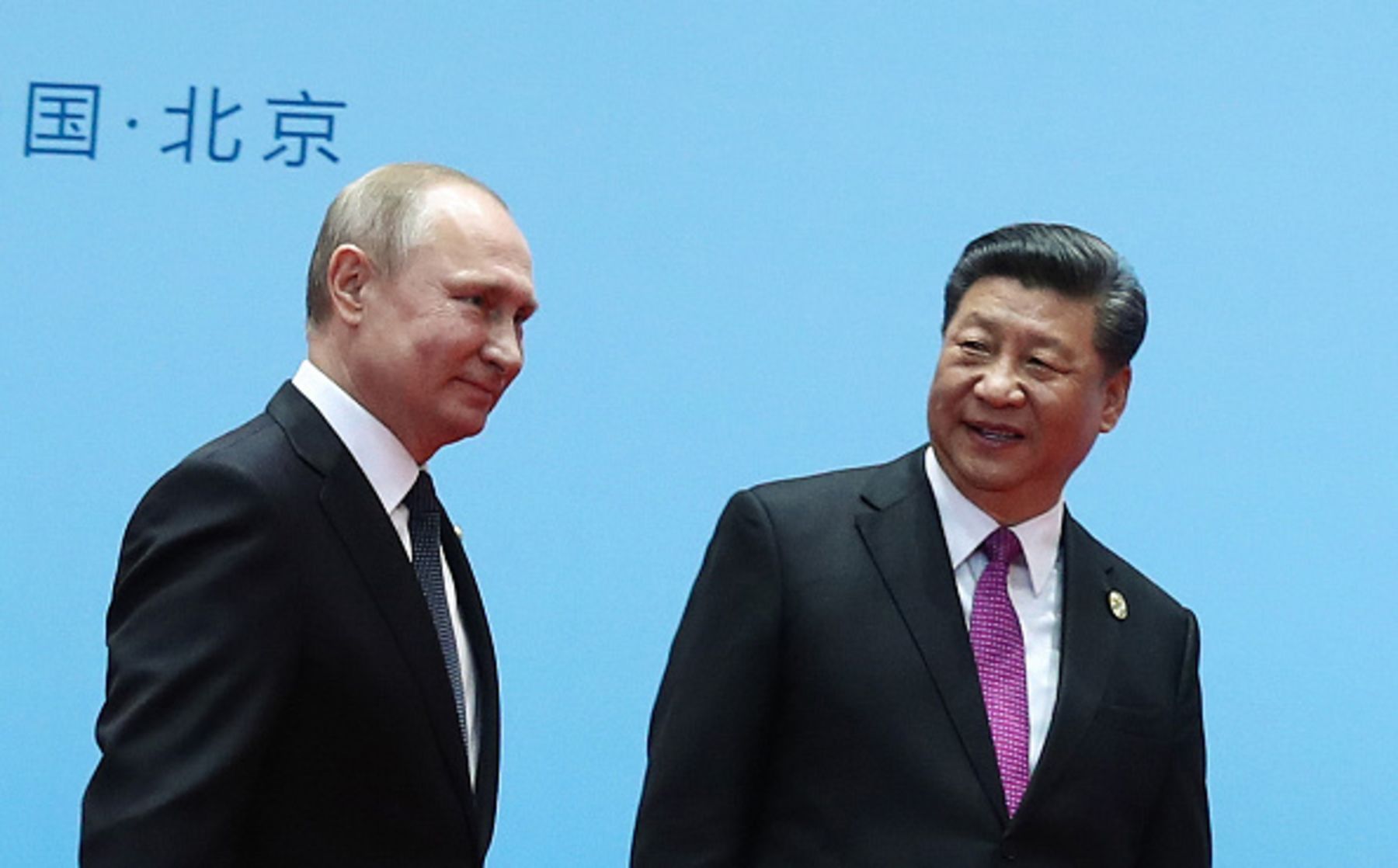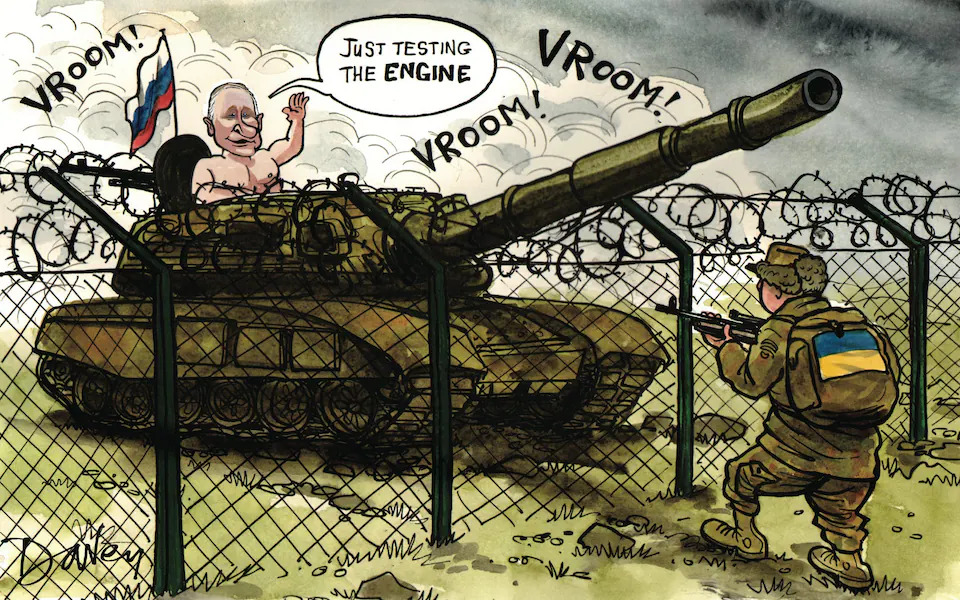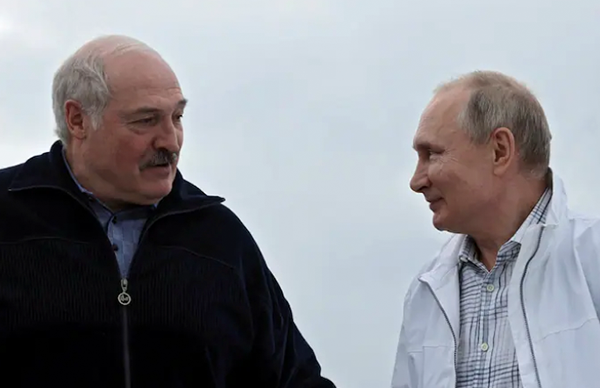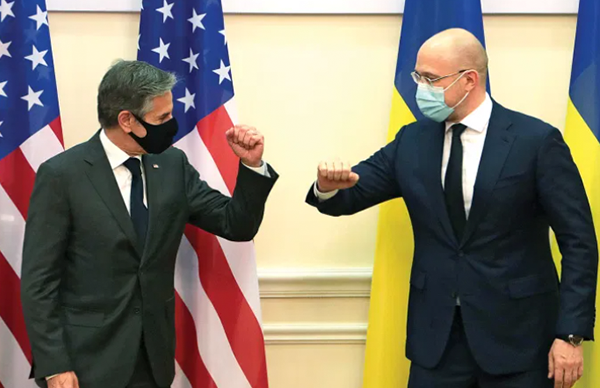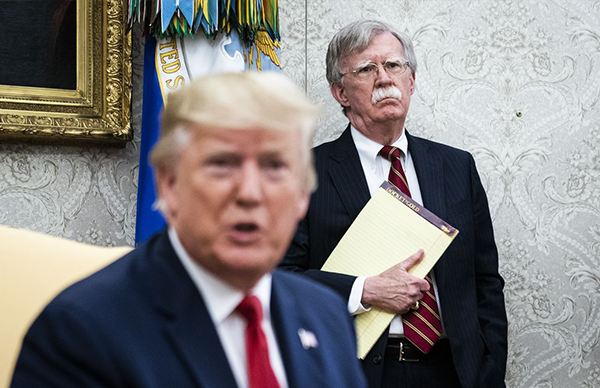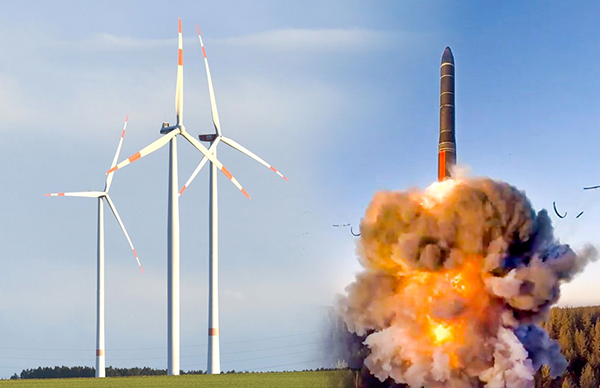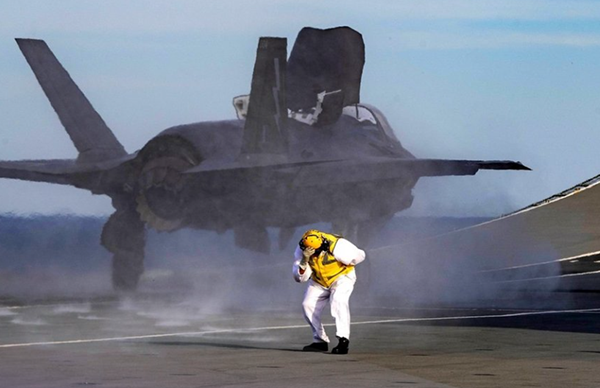Drop the virtue signaling on democracy and put some boots on the ground in Ukraine. A Q&A with Trump’s former national security adviser.
By Tobin Harshaw
This article appeared in Bloomberg on December 18, 2021. Click here to view the original article.
Last month, I was in Honduras for its watershed presidential election. (OK, I was actually there to scuba dive, but it was during the watershed presidential election.) The result wasn’t a shock: The wife of a leftist former president with antidemocratic leanings beat the candidate of the right-wing ruling party with antidemocratic leanings. What was remarkable was how smoothly things went. The New York Times called it a “largely peaceful, orderly election” and reported that “the chief of the Organization of American States’s electoral observation mission, former President Luis Guillermo Solís of Costa Rica, called the vote ‘a beautiful example of citizen participation,’ noting the high turnout.”
Two weeks later, U.S. President Joe Biden held his Summit for Democracy, pledging “to set forth an affirmative agenda for democratic renewal and to tackle the greatest threats faced by democracies today through collective action.” Guess who wasn’t invited: Honduras. And guess who was: Angola, Democratic Republic of Congo and Iraq, all of which are rated “not free” in Freedom House’s annual democracy scorecard.
Political liberty, it seems, is in the eye of the beholder. To make sense of the contradictions, I talked with somebody who has beheld many of them: John Bolton. Before his tempestuous tenure as President Donald Trump’s national security adviser — details of which can be found in his memoir, “The Room Where It Happened” — Bolton spent four decades in public service, including as U.S. representative to the United Nations under President George W. Bush. Here is a lightly edited transcript of our discussion:
Tobin Harshaw: Let’s start with Biden’s democracy summit, which I assume you don’t think was a smash success. What about the administration’s stated effort to put democracy promotion back at the center of foreign policy?
John Bolton: I would start from a different conceptual perspective. What we should be fostering in the world is not the abstraction of democracy, we should be fostering freedom, and those two things are not the same. Democracy has come to mean all things bright and beautiful, and that just obscures the meaning of what we’re after. What we want are constitutional representative governments, and, by definition, all constitutional governments are limited governments, which means they’re not fully democratic. People can live in freedom with different kinds of governments.
TH: It’s hard to understand why some countries were invited — Congo and Pakistan — and others weren’t, like Hungary and Bangladesh.
JB: When you get to summits like this, you inevitably end up making distinctions that are somewhat arbitrary. What we really ought to focus on is the threats to free government in the world, and invite people who may not meet a standard of perfection.
One reason not to hold this particular summit was the fact that it was virtual. Anybody who has ever been to major international meetings — the general debate at the United Nations every September, G-20 summits — will tell you that what’s important is not the plenary meeting, the speeches that all the leaders read and that nobody listens to, but the bilaterals, the pull-asides, the informal meetings. That’s where you can get into real substance. So the whole thing strikes me as an exercise in symbolism. I don’t believe in virtue-signaling.
TH: I like your distinction between democracy and freedom. Isn’t it true that many if not most nations exist in some sort of gray area between being free and being unfree?
JB: Trying to make this into a contest between democracies and non-democracies misses the point. The biggest threats we face are authoritarian governments, and you’re going to have governments that can be important allies but don’t live up to the standards that we live by. That may be unpleasant, but it’s the reality we live in.
TH: That was certainly a reality that we lived in during the Cold War.
JB: As Winston Churchill put it: If Hitler invaded hell I would make at least a favorable reference to the devil in the House of Commons. That’s not to say we don’t hope that these friendly nations will become better representative governments, and in some respects that has happened. We had Spain as a member of NATO while Franco was still the authoritarian leader, and yet now we have a functioning representative government in Spain and in Portugal. I think that shows progress.
TH: If we are in a new Cold War with China, what are the countries we should be looking for as allies, even if they don’t measure up to our highest ideals?
JB: I don’t think it’s a Cold War with China. Because it’s not ideological like it was during the Cold War with the Soviet Union. It’s two different systems for sure, but the authoritarian party that runs China now is not communist, except in name. It’s classic authoritarian, domestically and internationally.
The point we tried to make during the Trump administration was that we wanted a free and open Indo-Pacific, and we’re happy to band together with anybody who opposes countries that try to make it less than free and open. Vietnam is hardly a free democratic society, but it’s on the border with China and has longstanding historical concerns about Chinese hegemonic ambitions. I have no hesitation whatever to work with the government of Vietnam; one day they may decide to adopt a more representative government, and that would be great.
TH: There are people who feel that Chinese authoritarianism is an ideology — and that Beijing is trying to promote similar authoritarian states in its image through the Belt and Road Initiative and other things.
JB: I think the Chinese are less concerned about transforming foreign regimes than about dominating their own people. It’s a powerful argument against their system when you have social credit scores, where they judge the performance of their own citizens. That’s something a free society should reject. But I hardly put it in the category of communism or fascism or the more identifiable 20th-century ideologies.
TH: Weaker countries are finding themselves more and more dependent on Chinese investment and economic help through Belt and Road and other things. Do you think that they are in danger of becoming a string of vassal states, or do you think they will react against efforts by China to bring them into the net?
JB: In many cases they are already reacting against the circumstances they find themselves in. Because their previous governments did not scrutinize the terms of Belt and Road projects, they didn’t see the debt trap that they were walking into. That’s one thing that we ought to try to work with like-minded countries globally to help prevent. The West believes in free and open economic transactions, and the Chinese have a completely different model that they have worked with enormous success, in part by subverting and undercutting things like the World Trade Organization.
TH: Many people feel that one of those opportunities was tTrans-Pacific Partnership, yet the Trump administration pulled out before it was finalized, and the Biden administration doesn’t seem any warmer to it. Do you think that’s a mistake?
JB: The trouble with TPP was not its concept — to use an economic organization to help combat Chinese hegemonic aspirations. The problem with TPP was it didn’t do very much; it just wasn’t a very impressive deal. Now we should re-look at how you take a notion that’s correct conceptually and make it more effective. The whole Indo-Pacific today is more receptive to doing something than it was before.
TH: How can you have another project with these friends and allies who feel that the U.S. snubbed them in the end?
JB: They are very concerned about an American retreat from the region as a whole, and would welcome other initiatives. I think this is true really on a global basis. Part of the problem, starting with Barack Obama’s “pivot to Asia” and now Biden doing the same thing, is that every other region thinks we’re lessening our attention to them. We’re a global power, and the idea that pulling out of Afghanistan or the Middle East is somehow necessary to better deal with China is a completely fallacious argument. As we pull out of these regions, the Chinese move in.
TH: The question of the moment: Is Vladimir Putin about to start the largest land war in Europe since World War II, by invading Ukraine?
JB: I think Putin is doing cost-benefit analysis in real time, 24/7, and his objective is to get more and more hegemony in the space of the former Soviet Union — which may or may not include more annexation, a la Crimea — and to do it at a minimal cost.
Our threatened sanctions aren’t enough to deter him, and I think the U.S. and Europe have both suffered from a lack of strategic thinking. It’s not just a Ukraine question, it’s a question of what you do with the gray-zone countries: Belarus, Ukraine and Moldova in one clump, and then Georgia, Armenia and Azerbaijan in the other. NATO expanded east but it didn’t think through the logical end point: How much more are we going to expand and who are we consciously going to leave in a gray zone? So now Putin is forcing us to answer that question.
TH: The cliche is that he plays a weak hand well.
JB: I say that all the time.
TH: Like most cliches, it’s true. So how does the West play its stronger hand more effectively? Should NATO expansion be seriously on the table?
JB: Sure. President George W. Bush put it seriously on the table in April 2008, with respect to Georgia and Ukraine, and the Germans and the French said no. And four months later, the Russians invaded Georgia. You don’t get many laboratory experiments in foreign affairs, but there’s one of them right there, and I’m afraid we’re seeing another one here.
I would put more American and other NATO forces into Ukraine, exercising and training with the Ukrainians. Not because I expect them to fight, but because I want every Russian commander looking at that border to think, good grief, if I’m ordered to go across, there are going to be Americans a few miles away. I would send Defense Secretary Lloyd Austin to Kyiv right now to talk about greater cooperation. I would airlift more weapons into Ukraine, and into NATO countries that border on it, to say to Putin: Your cost-benefit analysis is changing right in front of you.
TH: Finally, let’s talk nonproliferation. You had an op-ed column the other day that did a good job of highlighting all the flaws in the 2015 Iran Nuclear Pact, but I don’t see much progress from arguing about the past. Biden and Trump both promised that Iran will never have a nuclear weapon. Is that even possible?
JB: Sure it is, but the problem is for 25 years we’ve had politicians of both parties who say it’s unacceptable for Iran to have nuclear weapons, it’s unacceptable for North Korea to have nuclear weapons. I always took it to mean that if something is unacceptable, we wouldn’t accept it. And that means you have to take steps to stop it, including military force.
On Iran, I’m not sure the U.S. is going to have to do that, because Israel is prepared to act. North Korea remains a problem that successive American governments have failed on, and there’s nobody else in the world to blame for the success of the proliferators. We were the only ones who could stop them.
TH: What does success look like?
JB: You’ve got options for regime change in both North Korea and Iran. The idea that if we just negotiate a little bit harder, we’ll find a way to solve the problem, has been wrong for 20 years. It’s not just the threat that they might use the weapons, it’s that they would sell them or give them to others: to terrorist groups in the case of Iran, to anybody with hard currency in the case of North Korea.
TH: China, which long had a small and not particularly fearsome nuclear arsenal, has been expanding it like crazy. It’s building underground silos, it’s tested out this wacky space missile, and so forth: What happens if China really achieves nuclear parity with the U.S.?
JB: Then we’ve got a three-way nuclear standoff. During the Cold War, we were really in a bipolar nuclear environment with the Soviets, even if the U.K. and France and later China and other countries had some weapons. I think we’re past that bipolar point already, whatever China’s capability, because there’s no doubt they could scale up to the levels that Russia and the U.S. have under the New Start treaty. One of the things I said in the Trump administration was that any negotiation over New Start extension or replacement must include China.
TH: But there were good reasons that the USSR came to the table with President Ronald Reagan, and later Russia as well: The U.S. held all sorts of advantages. What reason would the Chinese have to come to the three-way table today?
JB: They feel they don’t have to, because the U.S. government through successive presidencies has failed to recognize the nature of the threat. We have far too long believed that the consequence of Deng Xiaoping moving toward more market-oriented domestic policies would mean a more democratic China internally, and a more responsible China externally. Those hypotheses have been proven completely wrong. I don’t think the Chinese fear us, and I don’t think they believe there will be any consequences for them becoming the third major nuclear power.
TH: So what is the strategy to bring them into talks?
JB: People have to wake up to the issue of how you want to deal with China overall. I think we’ve got to start imposing some economic costs. I’m not suggesting any military action, but because China’s approach is a whole of government, whole of society approach, we’ve got to respond in part the same way. It’s going to be economic retaliation with things we should have done already anyway — for example, penalize China for the theft of our intellectual property for the last three or four decades.
TH: Finally, you had a second op-ed piece this week on some of China’s other bad behavior — decrying its influence on international organizations such as the UN Human Rights Council. You were the American representative to the UN: Is there any chance of making it a useful tool in spreading the freedom you described earlier?
JB: No, I don’t think so. But it’s a place where you have to conduct the battle, to make the case. What happened with respect to the World Health Organization and coronavirus, what China has done to keep Taiwan outside the international system, what it has done to pervert the whole concept of human rights in the Human Rights Council, shows how it pretends to participate constructively in the international system. You have to expose that kind of behavior. It is part of the persuasion war that we are losing all around the world today.
This column does not necessarily reflect the opinion of the editorial board or Bloomberg LP and its owners.

